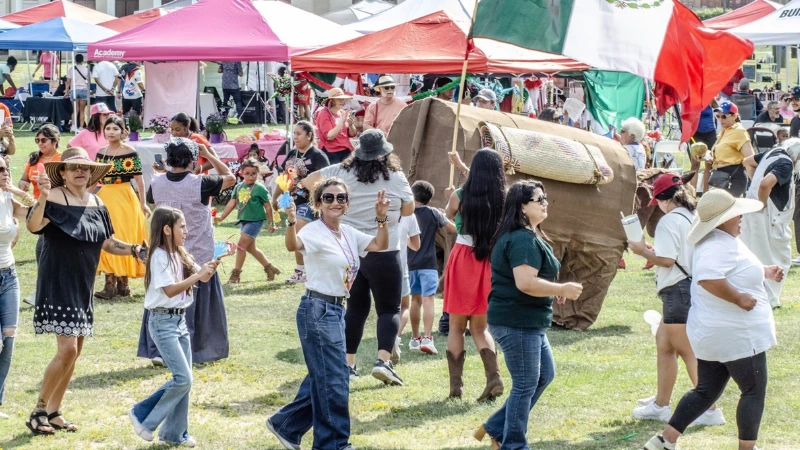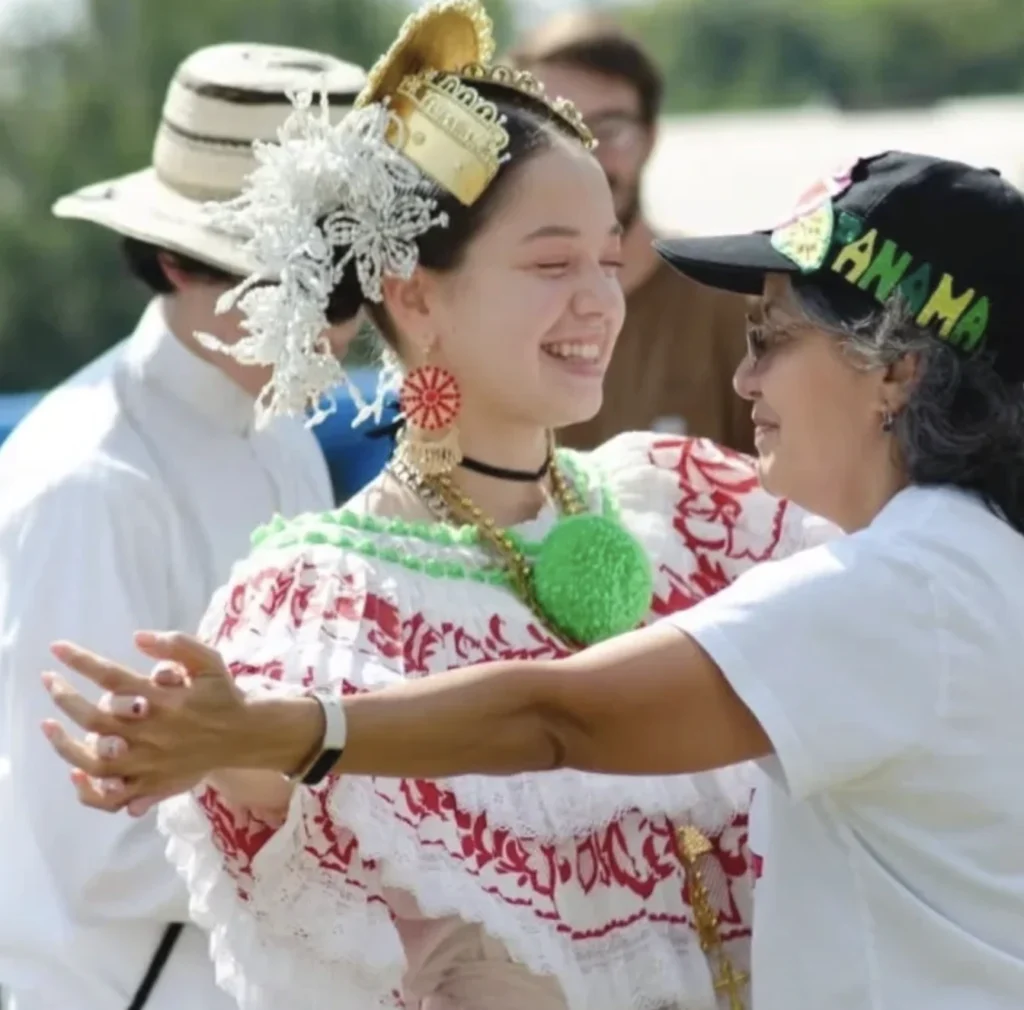Resources
How Community Media Can Host Events in Uncertain Times
October 15, 2025

Community media like NotiVisión Georgia are reimagining public events to ensure safety, belonging, and joy amid rising anti-immigrant tensions.
Across the country, community media outlets that serve Spanish-speaking and immigrant audiences are rethinking what it means to host public events. In today’s climate—where fear and uncertainty have grown under new anti-immigrant policies—celebrations that once felt simple now require thoughtful planning, strong partnerships, and a commitment to both safety and solidarity.
For NotiVisión Georgia, that commitment is at the heart of their work. The newsroom is preparing for its 4th annual Macon-Bibb Hispanic Festival on October 18, a gathering that celebrates Hispanic pride, culture, and community through music, dance, and food. But this year, the stakes feel higher.
“We’re seeing a divided sentiment,” said founder Monica Pirela. “Many people are excited to attend, while others express fear and prefer to stay home. Our small Hispanic business owners, despite uncertainty, have confirmed participation as vendors because the festival is crucial for their families’ livelihood.”
Tips for Community Publishers Hosting Events
The following guidance was developed with support from Nonprofit Secure- Safety and Security Hub, a Pivot Fund partner that provides flexible, on-demand safety and security support to nonprofit organizations and leaders.
1. Rely on Longstanding Community Partnerships
Collaboration and care go hand in hand when hosting public events. Partnering with trusted local entities can help create a safe and welcoming environment for all attendees.
NotiVisión Georgia already has a strong alliance with Macon-Bibb County and is relying on that partnership to plan a safe event. The Bibb County Sheriff’s Office will also be present.
For other outlets, it’s important to assess what approach best supports your community’s sense of safety. If law enforcement will be present, be transparent and balance that presence with community-based safety measures—like having volunteers, legal observers, or rapid-response partners available for de-escalation if needed.
Tip: Emphasize collaboration with trusted partners to create an environment where attendees feel informed, respected, and safe to celebrate.
2. Provide On-Site Support
Immigration attorneys and community organizations that serve Hispanic residents will also be on-site at NotiVisión’s event to share information and resources related to immigration and community safety.
Tip: Extend safety beyond the physical. Set up a resource or community support zone at your event. Partner with trusted nonprofits that can provide culturally competent guidance and practical information. Offer “Know Your Rights” cards and community zines that explain how to report ICE activity.
3. Uplift and Involve Trusted Local Businesses
Community celebrations are stronger when they reflect the people and small businesses that sustain them every day. At NotiVisión’s festival, Hispanic-owned businesses are a cornerstone—showing resilience and courage by participating despite uncertainty.
Tip: Invite local businesses your audience already knows and trusts. Their presence builds comfort and reinforces belonging, helping attendees feel part of a collective celebration.

4. Practice Clear Communication and Transparency
In times of heightened fear and uncertainty, open communication builds trust. While community media can’t control every risk, they can ensure their audiences feel informed and empowered to make the choices that are right for them.
Tip: Be transparent about safety protocols and event logistics. Offer multiple ways to participate—like livestreams or smaller satellite gatherings—for those who may not feel safe attending in person. Clear, visible care helps counter fear and strengthen confidence.
5. Think Strategically About Event Promotion
While the festival has received strong support from local businesses and sponsors, NotiVisión also faced challenges when some local journalists attempted to use the festival as an angle to discuss the national immigration situation.
“We did not allow the focus to be diverted from the event’s true purpose, which is unity and cultural celebration,” Pirela said. “The very conversation within the community—from those who plan to attend to those who express doubts—shows that the festival is a relevant and prominent topic in people’s minds, which, in itself, is an indicator of effective promotion.”
Tip: Develop a clear communications plan that outlines your key messages and goals. Anticipate sensitive questions and prepare talking points to keep coverage focused on your event’s purpose—helping your community feel informed, supported, and safe to participate.
6. Prioritize Physical and Psychological Safety
Even the most joyful gatherings can bring moments of tension when communities live under threat. While it’s impossible to control every factor, proactive planning can create spaces that feel secure and welcoming.
Tip:
- Establish clear safety protocols and communicate them early and often.
- Designate a safety team of staff and volunteers trained in de-escalation.
- Coordinate discreetly with legal observers or civil rights partners to monitor law enforcement conduct.
- Discuss boundaries with law enforcement in advance—clarify their role, visibility, and limits.
- Have a rapid-response plan for uninvited law enforcement or ICE presence, including contacts at immigrant rights groups and local officials.
- Signal care throughout: post signage about attendees’ rights, offer family or quiet zones, and emphasize that the space is one of dignity and belonging.
Key Takeaways for Publishers
- Plan safety collaboratively. Build relationships with local agencies and community leaders in advance.
- Center trust. Choose culturally competent partners who understand your community’s lived realities.
- Communicate clearly. Keep messaging consistent to foster confidence and participation.
- Integrate resources. Partner with organizations that provide legal or immigration support.
- Protect safety holistically. Consider physical, emotional, and informational safety before, during, and after the event.
Moments like this highlight the deeper role of community media: recognizing what their audiences need most. Sometimes that’s accurate information—but often, it’s space to connect, celebrate, and feel seen.
Even amid uncertainty, gatherings like NotiVisión Georgia’s Hispanic Festival remind us that joy and unity are forms of strength.
“A festival is more than music and food; it’s an act of community affirmation,” Pirela said. “It’s a chance to celebrate our heritage with pride—and this year, that takes on an even deeper meaning.”